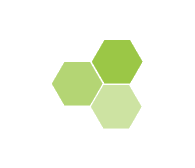Description
OBJECTIVES
• Background.
The study of complexity in social and physical systems requires a multidisciplinary approach that integrates different contributions from economics, sociology, engineering, geography, etc. In addition, the methodologies developed in recent years from artificial intelligence and within the scope of systemic thinking they allow the construction of models that help to understand complex systems.
With this approach and under the name of InSiSoc Group, a group of professors from the University of Valladolid, have been carrying out research work since the second half of the 90s. Their work has been reflected in numerous publications in prestigious magazines, participating also in different national and international research projects.
Goals.
The objective of the Research Group "Engineering of Social Systems" (InSiSoc) is, on the one hand, to promote research and modeling of the behavior of complex social systems, based on the behavior of the agents that make up the system and, on the other hand, explore and develop methodologies belonging to the field of systemic thinking, as well as build computer tools that facilitate their application to the study of complex problems.
These two lines of work, which cover complementary fields of intervention, have given rise to intense activity within the group of researchers who are part of the proposed GIR. Let's see the most relevant aspects of each of them.
I. Agent Based Modeling (ABM)
This line of work gathers the experiences and contributions of multi-agent systems, artificial intelligence, experimental economics, systems dynamics and, in general, the generative approach to modeling complex social systems. It also integrates the contributions of heuristic methods and production engineering to the study of social systems, as well as the possible translation of the results of research in these social systems to improve the operation of "physical systems": production, quality , environment, etc.
The current fields of application are, among others:
§ Design of market institutions.
§ Study of negotiation processes.
§ Industrial dynamics and policy.
§ Modeling of financial markets.
§ Experimental economics.
§ Integration of systemic thinking in agent-based modeling.
§ Learning and organizational change.
§ Evolutionary models.
§ Methodologies of interest for agent-based modeling: genetic algorithms, neural networks, etc.
§ Interrelation social systems-physical systems.
Since its constitution, it has carried out a large part of its work through regional, national and international projects. Noteworthy is the project entitled "Socioeconomic Research from Artificial Intelligence. Contributions in memory of H. Simon: ISIA Network ”, of the Ministry of Science and Technology or“ Freshwater Integrated Resource Management with Agents (FIRMA) ”of the V Framework Program of the European Union.
II. Systemic thinking (CENDEPES).
The main lines of research within the area of Systemic Thought are related to:
§ Application of Systems Dynamics and Organizational Cybernetics to the study of complex systems (RITTS, processes of diffusion of new disciplines, Spanish audiovisual sector (television), regional development).
§ Development of software tools to facilitate the application of different systemic methodologies (VSMod, Team Syntegrity, System Dynamics, VSMM, etc.)
§ Development of computer applications to capture and represent knowledge (Col-KCap) and to carry out Delphi studies through the Internet (Interdelphi).
§ Development of computer applications for the exchange of information and communication through the Internet (Collaboration Networks, Iberfora, etc.).
§ Creation of specific Internet-based tools for the dissemination of information (Colón Navigator) or for the creation of university networks in specific fields (universities in Brazil, Portugal and Spain belonging to the Tordesillas Group) in order to promote collaboration in the field of science and technology (Grupo Tordesillas).
Likewise, this group has been particularly active in the use of some of the tools described above for the creation of research and collaboration networks in the academic field (national and international). As an example of some of the particularly relevant networks created, we will mention the Iberfora Network (www.iberfora2000.org), the official website of the Ministry of Foreign Affairs- Spanish Agency for International Collaboration, on the offer of postgraduate studies in Spain (www. navigatorcolon.org), the Organizational Cybernetics network (www.patformforchange.org) or the Thematic Network of Systemic Thought (www.redtemps.net)
Also noteworthy is the broad participation in both national and international research projects, such as REDTEMS (Thematic Network of Systemic Thought) of the MCyT or IBERFORO (A systemic model for the exchange of information and decision-making) of the CICyT, or " Management Systems And Cybernetics (Msc) ”and“ Computer Based Modeling, Simulation And Graphic Representation Of Technology Innovation Networks ”, both from the European Commission.
RESEARCH LINES
• Systemic thinking
• Agent Based Modeling





